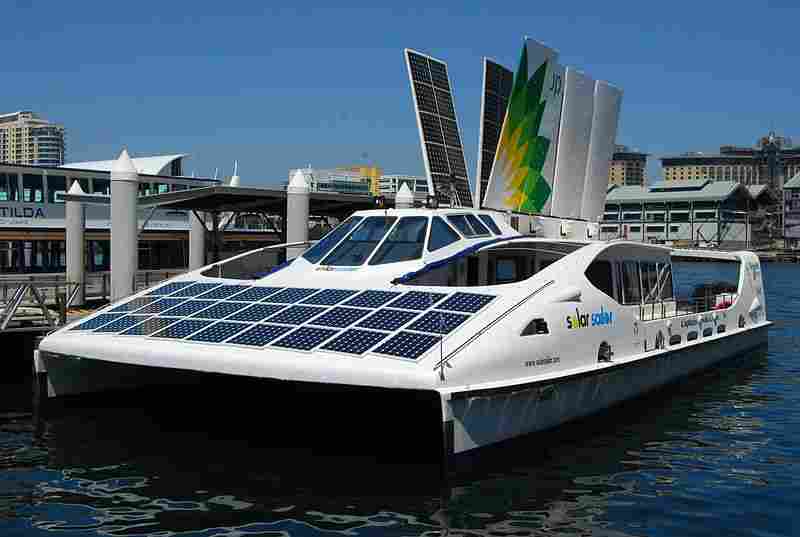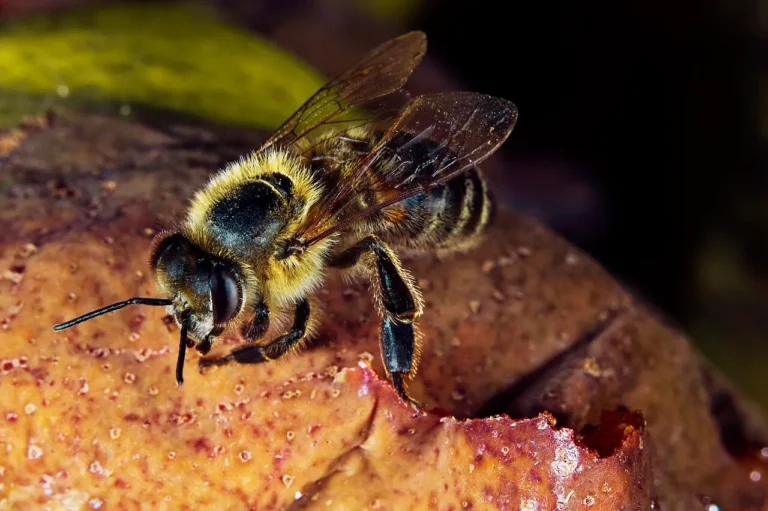12 Benefits of Energy Conservation Explained
Benefits of energy conservation are; environmental health, economic development, resource efficiency and improved public health. The importance of energy conservation is its ability to support sustainable development in the environmental, social and economic sectors.
This article discusses the importance and benefits of energy conservation, according to the following outline;
-Importance of Energy Conservation
-Benefits of Energy Conservation
-Environmental Benefits of Energy Conservation
-Economic Benefits of Energy Conservation
-Social Benefits of Energy Conservation
Importance of Energy Conservation
Energy conservation has a significant number of benefits.
However, the importance of energy conservation can be described as a unifying, overarching factor, which represents all possible benefits of conserving energy.
By conserving energy, the natural resources on Earth are ultimately conserved. Because natural-resource exploration and extraction also causes degradation of the environment, energy conservation is a viable means of environmental protection and health preservation, for the human populace.
Benefits of Energy Conservation
The benefits of energy conservation are simply a breakdown of the factors which make it important to conserve energy. This means that we can consider the benefits to be simply an elaboration of the importance of energy conservation.
In order to simplify the outline of these benefits, they may be grouped into three main categories, which are discussed as follows.
-Environmental Benefits of Energy Conservation
1). Wildlife Protection as a Benefit of Energy Conservation
There are various ways in which energy conservation protects wildlife.
One of these ways is by reducing the rate of destruction of natural habitats.
While exploring for natural energy resources like fossil fuels, it is often necessary to carry out intensive engineering projects at the site of exploration, which may involve excavation and drilling, among other activities. This can disrupt natural habitats adversely.
The construction of power plants, and the acquisition of biomass for biofuel-related energy projects, also often require extensive deforestation By conserving energy, the need to carry our more large-scale energy projects decreases, so as the rate and scale of habitat disruption.
Another way in which energy conservation leads to wildlife protection, is by the reduction of environmental pollution rate. Most energy-generation projects involve the release of some hazardous waste or another, which often causes pollution [2], and these materials, when released into the environment, may have negative impacts on the survival of organic species.
Energy conservation, in this context, reduces the rate of pollutant release, and therefore reduces the impact on wildlife.

2). Reduced Rate of Resource Depletion
The depletion of natural resources has negative potential effects on the environment.
This is especially the case for non-renewable, finite resources like nuclear fuel and fossil fuel. With increasing rates of energy consumption, the rate of natural resource depletion also increases. Obviously, by conserving energy, these resources can be conserved as well.
In addition to being helpful to the environment, natural-resource conservation helps to build a fairly resilient social and economic framework for the society. It provides a fallback option in adverse scenarios, such as natural hazards and economic recession.
3). Global Warming and Climate Change Mitigation
The generation and use of energy often leads to greenhouse emissions which can cause global warming and climate change, with time.
Fossil fuel-usage and nuclear energy generation are examples of how energy generation can affect the climate. When fossil fuels and nuclear elements are broken down, they tend to release carbon dioxide, methane, sulfuric oxide, and other gases, into the atmosphere [1].
Through energy conservation, greenhouse emissions can be significantly reduced; thereby reducing the threat of climate change.
4). Reduced Rate and Severity of Environmental Pollution
Aside greenhouse gases, energy generation can lead to the release of some other pollutants into the environment. These pollutants are often associated with waste materials that are produced in the process, and can have severe impacts on the environment.
Pollutants from mines, drilling sites, and power plants, are capable of polluting the air, soil and water, resultantly degrading the environment. Energy conservation reduces the rates of exploration, release of pollutants, and environmental pollution.

-Economic Benefits of Energy Conservation
5). Reduced Rate of Power Plant Construction
One of the direct effects of energy conservation is a reduction of the need for power plants.
In addition to having adverse environmental implications, power plants usually require huge financial investments for their construction and maintenance, thereby placing significant strain on the economy. In many cases, the cost of construction and maintenance is not offset by the value of the energy produced.
As the above paragraph implies, energy conservation saves the expenses which would be otherwise be made in order to build new power plants.
6). Minimization of Energy-Price Fluctuations
When the demand for a commodity is high (or continually increasing), the price of the commodity tends to fluctuate, in a predominantly-upward direction.
This is the case with energy resources, as can be observed in the continuous changes in the price of diesel and natural gas around the world. Energy conservation, on the other hand, is capable of stabilizing the cost of energy, since there is no excessively high demand. This can help to prevent the economic disruptions that often accompany such price fluctuations.
7). Optimization of Living Cost
Energy constitutes a significant proportion of the cost of living in many parts of the world.
Through the practice of energy conservation, the amount spent on energy can be reduced.
One of the advocated measures to reduce energy cost at the individual level, is the use of energy-efficient appliances [3]. The ripple effect of energy conservation and cost optimization, on the economy, is usually positive, as it spares resources that could be used to improve other economic sectors.
8). Socioeconomic Stability as a Benefit of Energy Conservation
When the demand for energy is consistently high, it makes the economy vulnerable to sudden changes, which are more often negative than positive (such as economic downturns).
For example; excessive energy demand from the transport sector will imply that even the slightest fluctuations in energy supply can cause a near-total collapse of the transport sector, which will in turn affect other sectors.
Through energy conservation, the economy will be made less-vulnerable to the effects of changes in the energy sector. At the same time, energy conservation will reduce the prospect of such changes occurring at all.
9). Increase in Property Value
Properties such as buildings, which are equipped with the capability of energy conservation, are generally of more value than their energy-intensive counterparts.
This makes it recommendable to incorporate energy-efficient components into existing buildings and facilities, while ensuring that a smart, conservative approach is applied to the design and construction of new facilities.
-Social Benefits of Energy Conservation
10). Improved Quality of Life as a Benefit of Energy Conservation
Several of the measures which can be taken to achieve energy conservation, are also geared toward improving the general quality of life.
Examples of such measures include the use of energy-efficient appliances, renewable technologies, and Insulation.
11). Reduced Rate of Exploration-Related Hazards
The extraction of natural energy resources is associated with potential hazards like explosions and oil spills.
Energy conservation reduces the rate of exploration and extraction of natural resources, and thereby also reduces the prevalence of such related hazards.
12). Reduced Prospect of Health Problems
Lung cancer is a notable example of health problems associated with fossil fuel combustion (which is carried out in order to generate energy).
By conserving energy, the release of toxins which can cause such health problems, can be reduced.
Conclusion
The ultimate importance of energy conservation is the preservation of the natural environment and its resources.
There are various benefits of energy conservation which can be identified. They can be broadly grouped into environmental, social and economic benefits.
Environmental benefits revolve around reducing greenhouse emissions and pollution. Energy conservation protects habitats by reducing the rate of exploration. In the sane vein, it leads to a reduction of the rate of depletion of natural resources.
Economic benefits of energy conservation reflect the savings which can be made by conserving energy. These benefits also include the improved economic resilience that can occur as a result of energy conservation.
Social benefits involve the potential health problems, and hazards that are likely to arise as a result of energy conservation. These health problems, such as lung cancer, become less prevalent when energy consumption rates (which are associated with pollution and toxin releases) are reduced.
References
1). Denchak, M. (2018). “Fossil Fuels: The Dirty Facts.” Available at: https://www.nrdc.org/stories/fossil-fuels-dirty-facts. (Accessed 8 February 2022).
2). EPA (2021). “Learn about Energy and its Impact on the Environment.” Available at: https://www.epa.gov/energy/learn-about-energy-and-its-impact-environment. (Accessed 8 February 2022).
3). Iredale, A. (2021). “Reduce your energy bills with smart appliance choices.” Available at: https://www.choice.com.au/home-improvement/energy-saving/reducing-your-carbon-footprint/articles/energy-efficient-appliances. (Accessed 8 February 2022).









